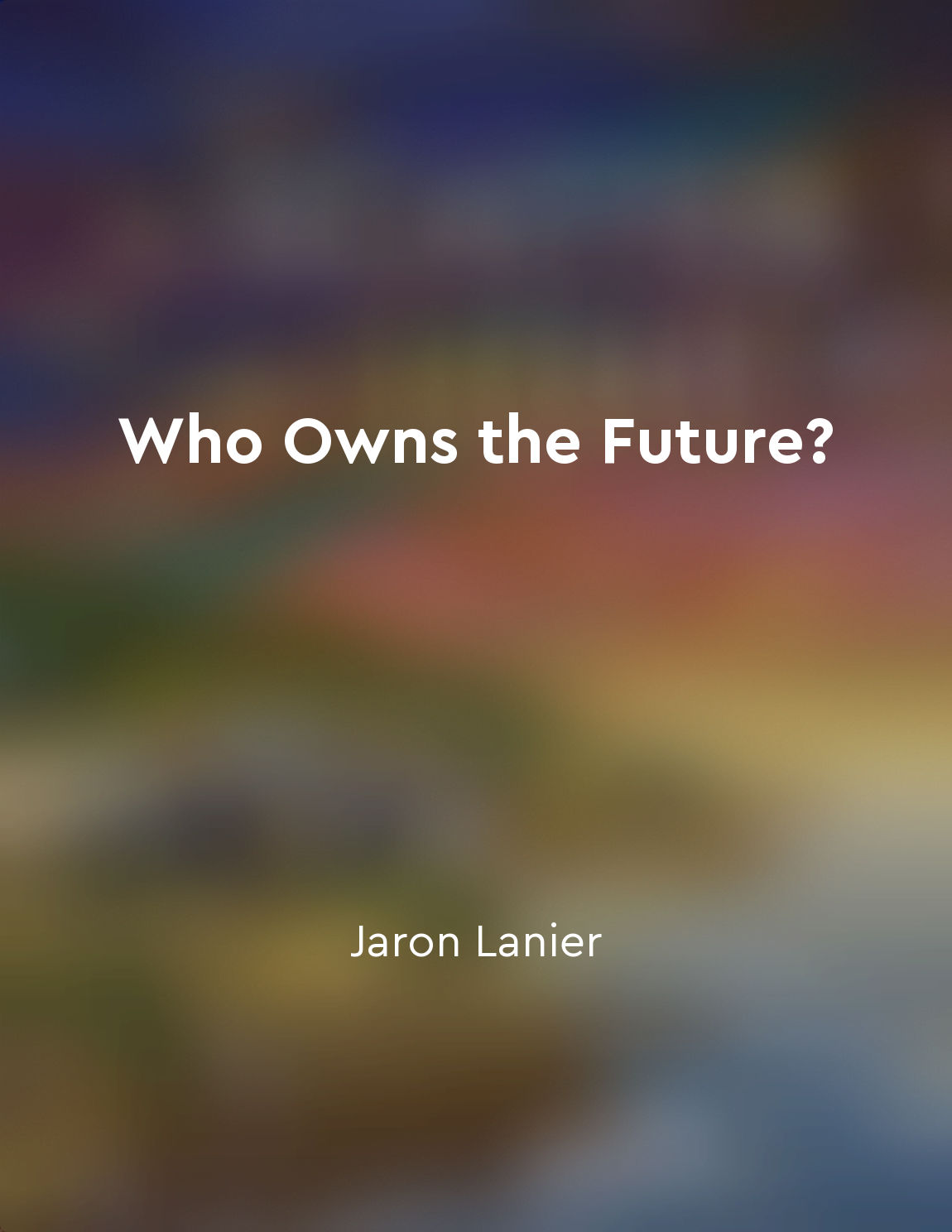Decentralized systems can empower individuals and distribute wealth more equitably from "summary" of Who Owns the Future? by Jaron Lanier
In the digital age, the promise of decentralized systems lies in their potential to shift power away from large corporations and government entities and towards individuals. By enabling peer-to-peer interactions and cutting out middlemen, these systems can empower people to take control of their data and intellectual property. This shift has the potential to distribute wealth more equitably by allowing individuals to directly benefit from the value they create online. Traditional centralized systems, on the other hand, tend to concentrate power and wealth in the hands of a few. In these systems, users often provide valuable data and content for free, while large companies profit immensely from aggregating and analyzing this information. Decentralized systems have the potential to disrupt this model by enabling individuals to monetize their own data and content. Imagine a world where individuals are compensated for the data they generate through their online interactions. This would not only empower individuals to have more control over their personal information but also enable them to share in the economic value created by their data. By shifting the balance of power in the digital economy, decentralized systems have the potential to create a more equitable distribution of wealth. Furthermore, decentralized systems can enable individuals to participate more directly in economic activities without the need for intermediaries. This can lead to a more level playing field, where individuals have the opportunity to compete with larger entities on a more equal footing. By cutting out middlemen and reducing barriers to entry, decentralized systems can open up new avenues for individuals to create and capture value.- Decentralized systems have the potential to democratize the digital economy by giving individuals more agency over their data and intellectual property. By empowering individuals to directly benefit from the value they create online, these systems can help distribute wealth more equitably and create a more inclusive economy. Ultimately, the promise of decentralized systems lies in their ability to shift power away from centralized entities and towards individuals, creating a more fair and just digital economy.
Similar Posts

The line between genius and madness blurred
In Silicon Valley, where the tech elite reside, the concept of genius is revered above all else. These individuals are seen as ...

Resurgence of populist movements
The resurgence of populist movements reflects a broader global trend towards political and social upheaval. This phenomenon is ...

Earth's early history shaped by geological processes
The story of our Earth begins long before the first human walked on its surface. It starts with the formation of the planet its...
Surveillance is impacting our lives
Surveillance has become an omnipresent force in our lives, shaping our behavior and influencing our decisions in ways we may no...

Influence of long tail
The long tail is a powerful force that shapes our modern economy and culture. It refers to the vast array of niche products and...

Job loss due to automation can lead to economic instability and social unrest
In the modern age, the rapid advancement of technology has brought about significant changes in the workforce. With the rise of...
Collaboration is essential for blockchain success
In the world of blockchain, collaboration is not just a nice-to-have; it is absolutely essential for success. This technology i...
Transparency is a key feature of blockchain
Transparency is a key feature of blockchain. This concept is fundamental to understanding the transformative power of this tech...

Without fair compensation, people will be left behind in the digital age
Fair compensation is crucial in the digital age because it determines who benefits and who gets left behind in the constantly e...

